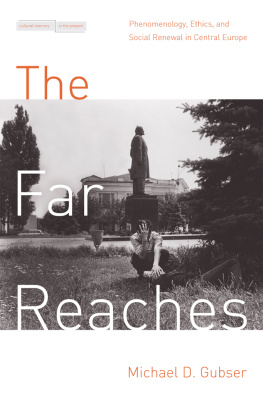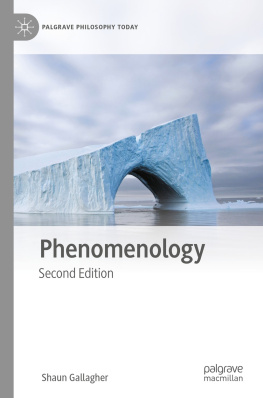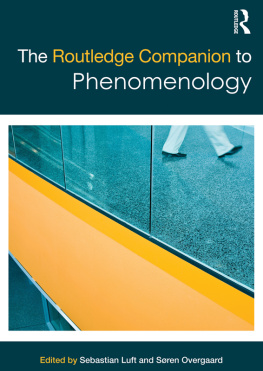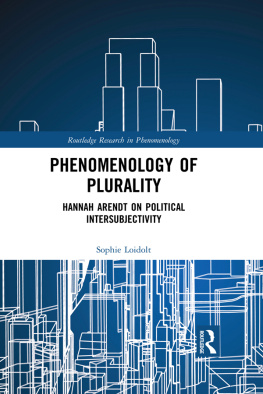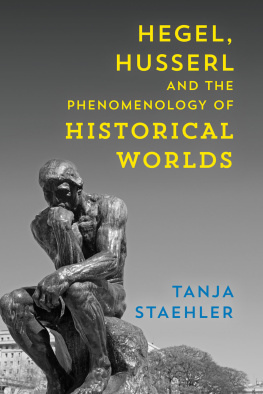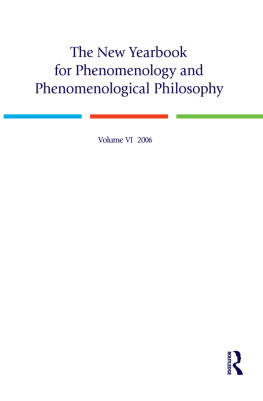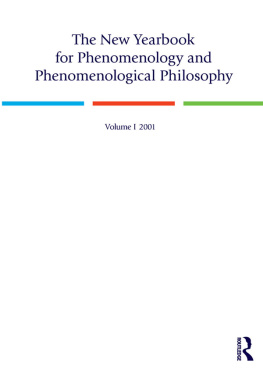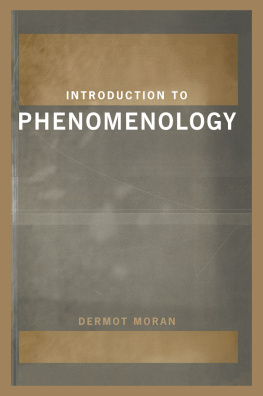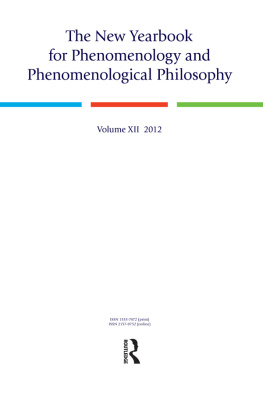Stanford University Press
Stanford, California
2014 by the Board of Trustees of the Leland Stanford Junior University.
All rights reserved.
No part of this book may be reproduced or transmitted in any form or by any means, electronic or mechanical, including photocopying and recording, or in any information storage or retrieval system without the prior written permission of Stanford University Press.
Printed in the United States of America on acid-free, archival-quality paper
Library of Congress Cataloging-in-Publication Data
Gubser, Michael, author.
The far reaches: phenomenology, ethics, and social renewal in Central Europe / Michael Gubser.
pages cm (Cultural memory in the present)
Includes bibliographical references and index.
ISBN 978-0-8047-9065-9 (cloth: alk. paper)
ISBN 978-0-8047-9252-3 (pbk.: alk. paper)
1. EthicsEurope, CentralHistory20th century. 2. PhenomenologyHistory20th century. 3. Ethics, Modern20th century. 4. Philosophy, European20th century. I. Title. II. Series: Cultural memory in the present. BJ324.P46G83 2014
170dc23
2014000494
ISBN 978-0-8047-9260-8 (electronic)
Acknowledgments
The history of phenomenology is partly a history of friendshipsamong the early disciples of Husserl in Munich and Gttingen, among the East European dissidents who joined together against their regimes, and among scholars who study the philosophy today. Fruitful intellectual work requires friendship not only to spark and hone ideas, but also to provide distraction from mental labor. Phenomenology, after all, can be claustrophobic. In the seven years that I have been writing The Far Reaches, friends and colleagues from every facet of my life have helped me both to develop and escape my thoughts.
First, the institutional support: the History Department and the College of Arts and Letters at James Madison University (JMU) provided me with funding to attend conferences and present versions of these chapters. More important, I also benefited from a department sabbatical in Spring 2011, to which an American Council of Learned Societies Ryskamp Grant contributed another invaluable year. That year and a half of dedicated research and writingsupported by the indefatigable efforts of JMUs Interlibrary Loan staffallowed me to finish the manuscript. I would also like to thank my editors at Stanford University Press, Emily-Jane Cohen and Friederike Sundaram, for showing an early interest in the project and then guiding it through the publication process.
I am also grateful to several journals that published earlier versions of some of my chapters: A Cozy Little World: Reflections on Context in Austrian Intellectual History, Austrian History Yearbook 40 (2009): 20214; Franz Brentanos Ethics of Social Renewal, Philosophical Forum 40, no. 3 (Fall 2009): 33966; An Image of a Higher World: Franz Brentano and Edmund Husserl on Ethics and Renewal [Auktesniojo pasaulio vaizdunys: Etinis atsinaujinimas pagal Franc Brentano ir Edmund Husserl], Santalka 17, no. 3 (2009): 3949; The Worldly Ethics of Edmund Husserl and Jan Patoka, Analecta Husserliana 110, pt. 2 (2011): 57998; and The Terror and the Hope: Jan Patokas Transcendence to the World, Schutzian Research 3 (2011): 185202.
Many people have read drafts of all or part of this book. They offered valuable advice, caught countless errors, and made insightful commentary, much of which ended up in these pages. My gratitude goes to (in alphabetical order) Ane F. Aaro, Erika Abrams, Margaret Anderson, Kimberly Baltzer-Jaray, Michael Barber, Ed Baring, Julian Bourg, James Chappel, Ivan Chvatk, Lee Congdon, John Connelly, Nicolas de Warren, Lester Embree, Michael Galgano, Saulius Geniusas, Stefanos Geroulanos, Anne Granberg, Kevin Hardwick, William Hawk, Martin Jay, Erazim Kohk, Piotr Kosicki, Kwok-ying Lau, David Luft, Dermot Moran, Josef Moural, Samuel Moyn, Greg Moynahan, Henry Myers, Thomas Nenon, Thomas Ort, Witold Potka, Marci Shore, Wojciech Starzyski, Aviezer Tucker, milie Tardivel, Lubica Unk, Donald Wallace, and Paul Wilson. The books strengths are in many cases theirs; its remaining flaws are of course my own. I also thank Witold Potka for helping me through my struggles with the Polish language.
The Far Reaches would not have been written had I not spent a year teaching in Prague in 199192, long before I had heard of phenomenology. I owe much of my subsequent education in Central European history to people over there, and one of the joys of this project has been the chance to return to that time and place. My fellow teachers at Zkladn kola Horkova extended incredible patience to a green young American who knew no Czech and had no experience in front of a classroom. Though I have lost touch with most them, I am pleased that Dan Janata, who patiently encouraged my first stumbling efforts in Czech language, still counts among my current friends.
My expatriate friends in Prague also laid the groundwork for this project. I did not know what intellectual history was until David Sparandara introduced me to my future career. As a roommate and traveling companion, Stephen Grant taught me about literature and politics. And it is very satisfying to partner with Tim Hetherington once again: I stood next to him in 1991, on the border of Ukraine and Slovakia, when he took the photograph that is now on the cover of this book.
The Far Reaches had other beginnings as well. My graduate advisor Martin Jay devoted the better part of my Ph.D. oral examination to grilling me on the history of phenomenology. In innumerable ways, he set the stage for my scholarly career, and I could ask for no better mentor. The books second half, on phenomenology in communist Eastern Europe, began in spring 2008 over a Chinese lunch with Jeffrey Herf. Before then, I had planned to limit the project to phenomenological ethics in interwar Germany, citing its influence on East European dissidents only to justify the importance of the topic. Jeffreys curiosity about this later story convinced me to expand the scope of my book. This enthusiasm was echoed by Samuel Moyn and Saulius Geniusas, who contributed their considerable expertise along the way. To all of these people I owe tremendous gratitude for seeing potential that I did not see myself.
The Far Reaches would also have been impossible without the many close friends and familytoo many to name herewho kept me sane by distracting me from it. I want to express particular gratitude to my in-laws, Joann and Han Soo Oh, who allowed me to attend several research-related conferences by visiting the East Coast to help care for their grandchildren in my absence. And without Hasiba Mohammeds loving child care for the past few years, this book certainly would not have been written.
As for Paolo Prandoni, the claustrophobia of book writing would have been unbearable without the escape into song-writing with him. This book took seven years to complete; the friendship and band that Paolo and I have maintained since Berkeley is, by contrast, a lifelong project.
Finally, nothing would have been possible without the infinite gifts given to me by my original family: my parents and sister, Donald and Virginia Gubser and Andrea Tribastone. They will always be the foundation of whatever success I have. And for my new nuclear family, Elisa, Theo, and Mirato whom this book is dedicatedthere is simply too much gratitude to express. Theo was born in 2010, right in the middle of my research; Mira in 2012, one day after I put the concluding period on the manuscripts first draft. While they slowed down the book in some ways, they also provided wonderful reasons for hurrying to completion so that I could spend more time with them.

